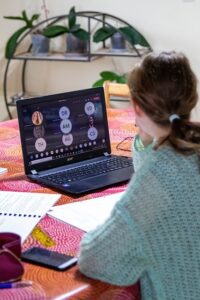Activity and Exercise for Patients With Heart Failure
You may ask, “How much can I do?” or “Can I still work?” Your doctors will tell you about what activities you can do.
Mild to Moderate
Most of the time, it will help you to stay active. Mild to moderate exercise can help you:
- Prevent muscle loss
- Keep muscle strength
- Increase energy
- Prevent weight gain
- Lose weight
- Feel better
- Reduce stress
What Type of exercise is good?
Aerobic exercises like walking, bike riding or water walking in a swimming pool are good.
What should I avoid?
Avoid heavy weightlifting, exercises that make you hold your breath or require bursts of energy. These activities put sudden demands or pressure on your heart.
How should I start?
Start slowly. Warm up before exercising. This lets you change from rest to work slowly. Your heart rate and blood pressure go up slowly. For example, if you are walking, start at a medium pace for 5 minutes. Then, speed up. Cool down so your heart rate and blood pressure go back to normal slowly.
Start walking with a 5-minute warm up, then do a 5-minute brisk walk, followed by a 5-minute cool down. Do this 3-4 times the first week. In 3 months, you will be walking 30 minutes each time. See example:
Week 1:
- Warm-up: 5 minutes
- Brisk walk: 5 minutes
- Cool down: 5 minutes
Week 2:
- Warm-up: 5 minutes
- Brisk walk: 7-8 minutes
- Cool down: 5 minutes
Week 3:
- Warm-up: 5 minutes
- Brisk walk: 9-11 minutes
- Cool down: 5 minutes
How hard should I work when walking briskly?
You should feel like you are doing “very light” to “medium” work. Remember, you should be able to talk during exercise. If you find it hard to talk when walking, you may be working too hard.
Do:
- Wear comfortable clothes and flat sneakers with laces.
- Wait 1-2 hours after eating to exercise
- Be careful if the temperature or heat index is more than 800 F. When the temperature is very warm, your body must work to cool itself. Exercising at this time may put too much stress on the body. On hot days, exercise during the cooler parts of the day or walk indoors.
- Cover your mouth and nose with a scarf or mask when it is cold out.
- Allow time to rest between activities and exercise.
- Write down when you exercise. Keep the log where you will see it each day.
Don’t:
- Do not exercise if you are sick or very tired.
- Do not exercise outside when the temperature is below 400 F. When it is cold, your body must work to keep warm. Exercising at these times may out too much stress on your body.
- Do not shovel snow. This is too much for your heart.
Do not get discouraged if you need to stop and restart. Just start again. Work your way up to your old pace.
Do not do activities that cause chest pain, trouble breathing, dizziness or lightheadedness. If you have any of the symptoms:
- Stop right away and rest.
- If you have chest pain, take recommended medicines by your doctor.
- If pain does not go away, go to the nearest emergency room, or call 911. Do not attempt to drive yourself.
- If symptoms get better, call your doctor for advice.
Sex and Heart Failure
The diagnosis of heart failure may cause stress for you and your family. It may make you feel depressed and anxious. This is normal. The first step is to admit your feelings. Be patient with yourself and talk to your partner about your feelings.
Many people want to know if they can have sex when their heart failure is under control. The answer is “Yes.” Having sex will not cause more heart damage. It takes about the same amount of energy to have sex as it does to climb 2 flights of stairs. Here are some tips:
- Choose a time when you are rested and relaxed.
- Wait 1 hour after eating, taking a bath, or exercising. This will keep you from getting too tired.
- If you feel uncomfortable or tired, stop and rest for a while.
Some medicines may cause erectile dysfunction. This can usually be treated. Talk to your doctor.
This information is for informational purposes only and is not meant to be a substitute for professional medical advice, diagnosis, or treatment. ifocurs is not offering advice, recommending, or endorsing any specific prescription drug, pharmacy, or other information on the site. ifocurs provides no warranty for any information. Please seek medical advice before starting, changing, or terminating any medical treatment.







